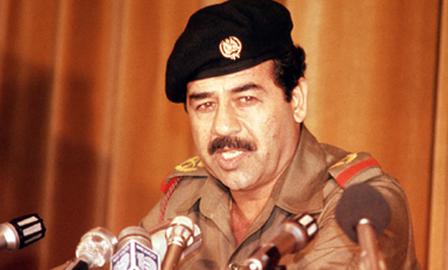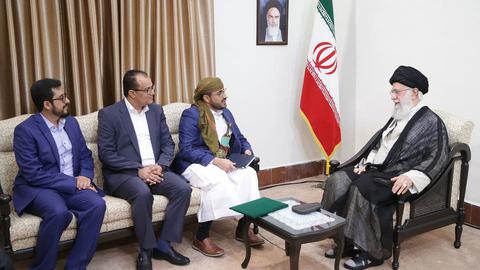On December 9, 1991, the UN Secretary-General of the time, Javier Perez de Cuellar, submitted a report to the UN Security Council based on Resolution 598. This resolution was adopted by the Security Council on July 20, 1987 to end the Iran-Iran war, and resulted in a ceasefire between the two countries that came into effect on August 20, 1988. The secretary general’s report stated that Iraq was responsible for the “beginning” of the military conflict on September 22, 1980. It asserted that Iraq’s aggression could not be justified according to international law, adding that even before the beginning of a full-scale war, Iraq had made encroachments upon Iran’s territory.
Saddam Hussein’s responsibility for the beginning of the eight-year war resulted from the fact that, on September 22, 12 Iraqi divisions had carried out a full-scale military invasion into Iran’s territory. However, the Islamic Republic of Iran also bore its own share of responsibility for the escalation of the conflict with Iraq.
In other words, the provocative policies of post-revolution Iran played a decisive role in laying the groundwork for a military conflict with Iraq, despite the fact that Baghdad was possibly looking for a pretext to invade its eastern neighbor. Saddam Hussein apparently viewed Iran as a chaotic country whose military power had been so weakened after the revolution that it was not able to defend its borders.
Provocations by Ayatollah Khomeini
Ayatollah Khomeini’s pre-war statements undoubtedly overshadowed relations between Iraq and post-revolution Iran.
The founder and former leader of the Islamic Republic of Iran lived in exile in Najaf, Iraq from 1964 to 1979, before leaving the country to France under pressure from the Iraqi government. His long-time residence in Iraq and the fact that one of the most important Shia seminaries was located in Najaf, where plenty of Iranian clerics resided, had led him to pay special attention to Iraq-related issues. As a result, after the victory of the Islamic revolution in Iran, Ayatollah Khomeini did not hesitate to make numerous statements about the Iraqi situation and, in particular, the Saddam Hussein government, of which the ayatollah was very critical.
The ayatollah’s verbal attacks on Saddam Hussein intensified, in particular, after the Iraqi regime executed Muhammad Baqir al-Sadr, a Grand Ayatollah who was born in Iraq but belonged to a famous Iranian family of Shia clerics, on April 8, 1980.
On April 9, 1980, Khomeini described Saddam Hussein as a “traitor,” a “parasite” and an “inhumane” figure that should be “destroyed.” Criticizing Baghdad’s pressure on the Najaf seminary and its Shia ayatollahs, he anticipated the downfall of the Saddam Hussein regime and addressed the Iraqi people: “Rise up and cut the criminal hands off your Islamic country before this corrupt regime destroys you.” He also called on the Iraqi army to disobey Saddam Hussein and “to cut off the US hand that has come out of Saddam’s sleeve.”
On April 10, Ayatollah Khomeini predicted that Saddam Hussein was “on the verge of annihilation” and expressed hope that the Iraqi regime “will be dumped into the dustbin of history.”
On April 17, Khomeini again called on the Iraqi army to rebel against their president, and encouraged the "good and religious" officials in Iraq to stage a “coup” and “eliminate” Saddam Hussein. The ayatollah further added: “It is haram [religiously forbidden] for them [the Iraqi officials] to support this cursed person [Saddam]. They must rise up against him to Islamize their country and government.”
In a similar message on April 22, Khomeini called on Iraqi “officers and soldiers” to either "rise up bravely to overthrow the tyrants or run away from the garrisons." He also urged the Iraqi workers and government employees to change their country’s regime.
Ayatollah Khomeini’s verbal attacks on Saddam Hussein’s government, which went on until the beginning of the war, cannot be interpreted as being the major reason for the war. However, Khomeini’s provocative remarks, and especially his calls on Iraq’s army to topple Saddam Hussein, revealed his particular attitude toward the Iraqi government. This attitude affected the actions of Ayatollah Khomeini’s followers in Iranian revolutionary institutions, as well as within certain Shia circles in Iraq.
Mahmoud Doaei, a former Islamic Republic ambassador in Baghdad whose mission ended a few months before the start of the eight-year war, wrote in his diaries that before Iraq’s invasion, many Iranian newspapers, as well as Iran’s state-run TV and radio channels, circulated extremely provocative anti-Saddam Hussein propaganda. Doaei says he raised this issue during a government session in the presence of Iranian revolutionary officials, urging them to deescalate tensions with Baghdad. He also writes that the Iraqi government asked him to convey its message to Ayatollah Khomeini that Saddam Hussein was willing to directly negotiate bilateral issues with a representative for the Iranian leader. Iran’s ex-ambassador to Iraq adds that the ayatollah declined this offer, emphasizing that negotiating with a person like Saddam Hussein would be absolutely useless.
In an interview with the BBC in December 2014, Ayatollah Hossein Ali Montazeri, the second-highest-ranking cleric in the Islamic Republic at the beginning of the war, said he warned the then-leader about the ongoing escalation of tensions with Iraq. Ayatollah Montazeri stated that he had suggested that post–revolution Iran should send a goodwill emissary to Baghdad to ensure them that the new government had the intention of having good relations with Iraq. According to Montazeri, he even warned that if Iran did not reduce these tensions, Saddam Hussein would be prepared for a war. However, the leader did not agree with this proposal.
Nonetheless, apart from the aforementioned facts, the Islamic Republic's mistakes in the run-up to the war went well beyond provocative rhetoric from revolutionary authorities. This is the first of a two-part series on the politics of the Iran-Iraq war. In the next installment, we will review other important factors that laid the groundwork for Saddam Hussein’s invasion of Iran in September 1980.
Read more in the Decoding Iran's Politics series:
Decoding Iran’s Politics: The IRGC and the Iran-Iraq War
Decoding Iran’s Politics: The Concept of Revolution in Iran, 40 Years After 1979
visit the accountability section
In this section of Iran Wire, you can contact the officials and launch your campaign for various problems




























comments